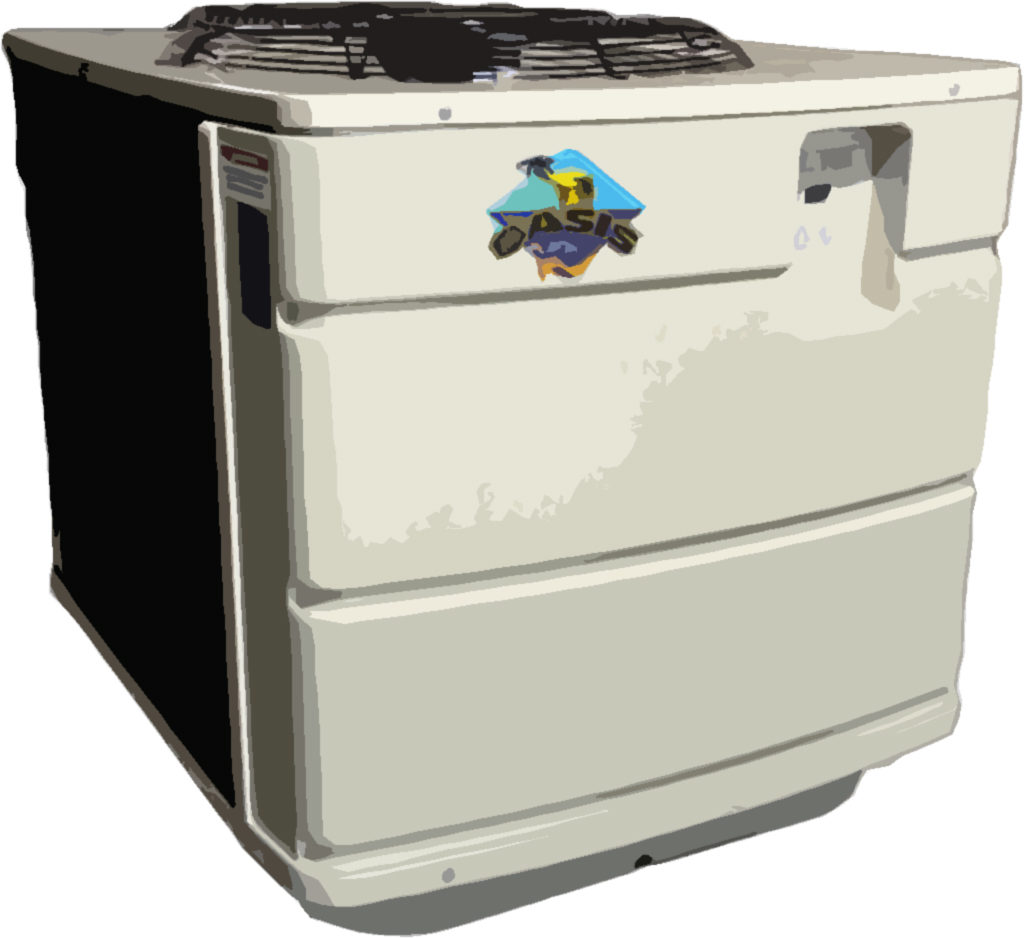Trying to figure out what’s the best pool heater for winter? Well, you’ve come to the perfect place
Since you’re here, it’s clear that you’re doing your research ahead of time. Good call, because each pool heater definitely has its strength and weaknesses. Factors that make some better suited for certain conditions. In this post, we’re narrowing down your choices to the most effective pool heaters for winter.
But before we jump into the good stuff, there’s some essential information you need.



Using your pool in the winter | What you need to know
In an ideal world, our pools would stay heated naturally year round. Maintaining the perfect swimming temperature with zero effort on our part. But the reality is, pool owners experience a full range of weather conditions. From blazing hot and dry to freezing cold and icy. And depending on where you live, you may experience all four seasons or hardly any at all.
Either way, swimming during the colder months takes some extra effort on your part. Hence why we wrote an entire post on using your pool during winter.
And on that note, in comes an important question to ask yourself.
Are your winters mild enough to keep your pool open year round?
Ironically enough, there is such a thing as too cold in the pool world. As you know, water has a freezing temperature of about 32 degrees Fahrenheit. So when the water in your pool reaches that temperature, science happens, freezing it solid.
Now, for many pool owners, these climate extremes aren’t an issue. Most areas in the south deal with mild winters, with temperatures reaching a low of about 40. And it’s pretty much the same case for most of the west coast — often times, much warmer.
However, for a good portion of the remaining population, winters are frigid, strong, and packed to the brim with snow.
But regardless of where you fall in the weather spectrum, one thing is crucial:
You MUST keep your water heated well above freezing temperatures if you plan to use, or keep your pool open throughout the winter.
Why? Because one slip up can means hundreds of dollars in repairs for ruptured pipes and freeze damage.
So how do you choose the best pool heater for winter? One that can battle the cold with a consistent heat on even the most frigid days. The answer to that question is entirely dependent on your budget, and once again, where you live. Allow us to explain.
The Best Pool Heater For Winter
Well actually, pool heaters. Plural. We’d like to tell you that one of them is the best pool heater for winter, but that’s just not the case.
Why?
Because it comes down to two factors: reliability and affordability. And usually, during the winter, you can only have one or the other.Usually…
Pool heat pumps (affordability)



Pool heat pumps are what most would consider, the best pool heater for winter. That is, as long as your winters stay safely above freezing temperatures. With a minimal pull on electricity, they source their heat naturally from the air. Operating fully independent from sunlight or limited resources like gas. This makes them incredibly energy efficient, which keeps your heating costs low and affordable.
In normal temperatures, pool heat pumps are easily one of the most reliable pool heating options available. But in this scenario, our focus is on their affordability. Because these energy efficient pool heaters have their limits when the cold comes around. Limitations that can, unfortunately, affect their reliability.
Pool heat pumps and freezing weather
Most pool heat pumps shut down at around the 40-50 degree range. This automatic feature prevents the pool heat pump from freeze damage in colder climates. Which is great because it keeps your heater safe, but it also prevents you from heating your pool.
In these situations, many pool owners use an automatic timer. These timers connect to your pump/pool heater breaker, activating your system when temperatures reach a preset threshold. In other words, they’re essential to avoiding freeze damage when you’re unable to monitor your pool 24/7.
But what about when the weather gets too cold, and your pool heat pump just isn’t cutting it. You turn to the most expensive (by a huge margin) yet reliable options in the pool heating world.
[Don’t have an automatic timer or suitable heater just yet? Play it safe. Here’s how to properly winterize and close your pool]
Why gas and electric resistance pool heaters are the perfect backup units



When it comes to affordability and energy efficiency: pool heat pumps all the way.
But when speed and reliability are at the forefront, gas and electric pool heaters take the crown.
Unlike pool heat pumps, both heaters can provide heat throughout the freezing cold. And they do it pretty fast, even in the winter. But this level of convenience, of course, comes at a price. A monetary price mostly, if we’re being straightforward, but allow us to break it down a bit more.
Gas heaters:
- Require a dedicated gas line, an extra expense during installation
- Need fuel (gas from a city line, or propane from a backyard tank)
- Are best suited for smaller pools and spas, because of heating costs
And it’s a similar situation with electric resistance heaters.
They run exclusively on electricity, so gas is out of the picture. But since they’re not designed for energy efficiency like pool heat pumps, they have an insanely heavy pull on electricity. This produces the highest heating cost of all the pool heater types. Especially on an average backyard swimming pool.
[Learn how electric resistance pool heaters work]
And that’s why the whole point of this section was to explain why both gas and electric resistance pool heaters are great backups, but not starting lineup material. Because for most pool owner, energy efficiency and affordability takes priority in the pool system.
[Want to cut costs and swim more? Consider using a pool heat pump and solar pool heater together]
Closing thoughts
It’s simple really. If your winters are mild and NOT freezing, go with a pool heat pump. For frigid and snow filled winters, make use of an automatic timer and a backup gas/electric resistance heater for the coldest days. Bottom line is, the best pool heater for winter is the one that accommodates your needs, including everything from budget to temperature. And sometimes, that requires using more than one heater.
Have a few questions about pool ownership? Our Pool Owner Guide covers everything from ladders to pool chemistry


